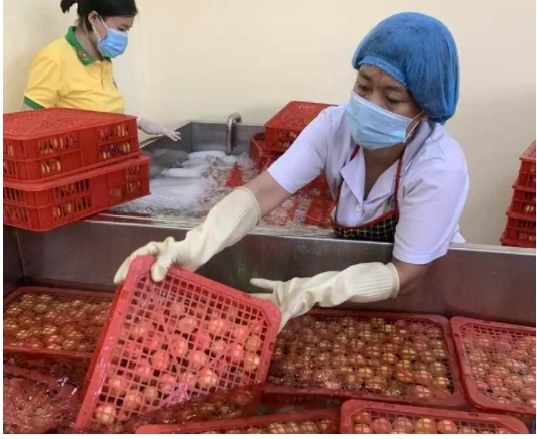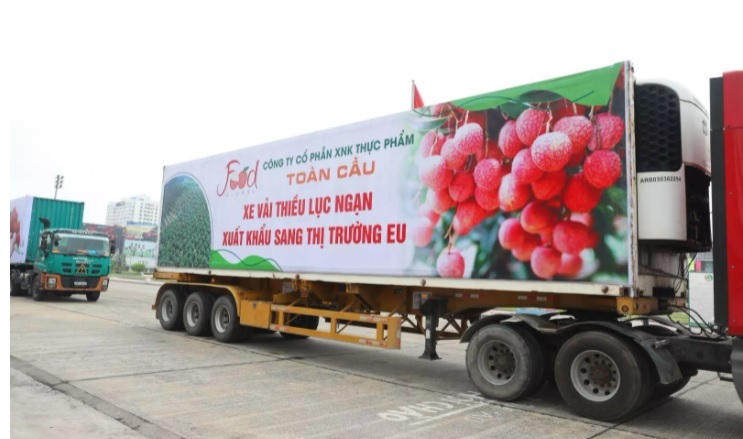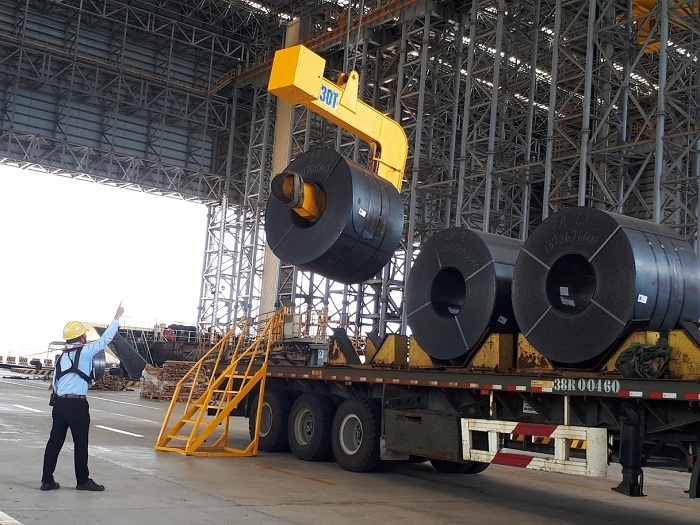Vietnam's export turnover to Germany in 2020 increased by 7.85%, with $11.3 billion, making Vietnam the largest partner of Germany in Southeast Asia and the third in Asia.
In 2020, Vietnam earned $196.6 million from exporting fresh and processed meat and fish products to Germany, accounting for less than 1% of Germany's import demand (approximately $26 billion); $303 million from fresh, processed fruit and nuts, accounting for 2.7% of Germany's import demand (about $11.2 billion); and $429 million from tea, coffee and spice products, accounting for 10% of Germany's import demand (about $4.1 billion).
These statistics come from the German statistics agency.
According to Bui Vuong Anh, the potential of the German and EU markets is still huge.
The growth
 |
|
|
If taking advantage of opportunities and legal frameworks such as the EU-Vietnam Free Trade Agreement (EVFTA), the joint committee mechanism on Vietnam-Germany economic cooperation, Vietnam's agricultural products have an opportunity to deeply integrate into this relatively picky market. In particular, taking advantage of the local distribution channel developed by the Vietnamese community is an advantage.
According to data from the Vietnamese Ministry of Industry and Trade, thanks to the EVFTA, export revenues of many key agricultural and forestry products of Vietnam from the EU in the first half of 2021 grew significantly compared to the same period of 2019. Specifically, export revenues from rubber products reached $61 million, up 56.91%; rice $5.2 million, up 3.73%; rattan, bamboo, sedge and carpet products $70.5 million, up 33.75%; vegetables and fruits $63.8 million, up 12.5%.
According to data of the General Department of Customs of Vietnam, export of goods to Europe reached $29.17 billion in January-July, up 18% year on year, including $22.81 billion from the EU, up 17%.
With a population of over 500 million people and a total GDP of 16,452.07 billion euros, the EU is one of Vietnam's largest trading partners and the second largest export market after the United States. However, export of agricultural products such as fresh fruits to Europe is still limited.
For export of textile-garment and footwear to the EU, according to the Import-Export Department of the Ministry of Industry and Trade, the outbreak of the Covid-19 pandemic affected demand for non-essential goods, including these products. Thanks to the implementation of the EVFTA, exports of these products gradually recovered in the last five months of 2020 and the early months of 2021.
Luong Hoang Thai, Director of the Multilateral Trade Policy Department, affirmed that Vietnam's participation in one of the new-generation trade agreements such as the EVFTA with a major partner like the EU has created many opportunities for the country to access many fields of potential.
Cooperation with the EU in high-tech agriculture has high potential, through which Vietnam can receive the transfer of high-tech solutions in agriculture, manufacturing and processing agricultural products. The EVFTA and the EU-Vietnam Investment Protection Agreement (EVIPA) are opportunities for Vietnam to access the potential of the EU’s capital and technology.
The Vietnam Trade Office in Belgium and the EU said that EU consumers are more interested in the Vietnamese market as the advantages brought by EVFTA become more apparent.
The implementation of EVFTA has helped many types of goods of the two sides enjoy tax reductions and exemptions under a certain roadmap. The year 2021 is considered an important milestone when Vietnamese fresh fruits such as litchi and longan are directly exported to Western European countries such as the Netherlands, Belgium, France, Germany, and the UK.
Exports of agricultural products to the EU will begin to recover after the COVID-19 epidemic is controlled. This is a favorable time to promote the export of Vietnamese agricultural products to this market.
In the coming time, coconut and coconut products, jackfruit products, processed fruits and vegetables, dragon fruit and passion fruit, and organic agricultural products will be exported to the EU, conquering this picky but important market.
 |
|
|
Luong Hoang Thai, Director of the Multilateral Trade Policy Department, affirmed that Vietnam's participation in one of the new-generation trade agreements such as the EVFTA with a major partner like the EU has created many opportunities for the country to access many fields of potential.
Cooperation with the EU in high-tech agriculture has high potential, through which Vietnam can receive the transfer of high-tech solutions in agriculture, manufacturing and processing agricultural products. The EVFTA and the EU-Vietnam Investment Protection Agreement (EVIPA) are opportunities for Vietnam to access the potential of the EU’s capital and technology.
The Vietnam Trade Office in Belgium and the EU said that EU consumers are more interested in the Vietnamese market as the advantages brought by EVFTA become more apparent.
The implementation of EVFTA has helped many types of goods of the two sides enjoy tax reductions and exemptions under a certain roadmap. The year 2021 is considered an important milestone when Vietnamese fresh fruits such as litchi and longan are directly exported to Western European countries such as the Netherlands, Belgium, France, Germany, and the UK.
Exports of agricultural products to the EU will begin to recover after the COVID-19 epidemic is controlled. This is a favorable time to promote the export of Vietnamese agricultural products to this market.
In the coming time, coconut and coconut products, jackfruit products, processed fruits and vegetables, dragon fruit and passion fruit, and organic agricultural products will be exported to the EU, conquering this picky but important market.
Standardizing products, building trust with partners
Pham Van Hien, Director of LTP Import Export B.V. in the Netherlands, said that it is necessary to improve cultivation, ensure sustainability, meet globalGap certification and offer a large output of agricultural produce.
“The import of a few tons of agricultural produce per season has not made a clear impression in Europe and is unprofessional with supermarket chains and stores in Europe," said Hien.
According to Hien, Vietnamese agricultural products not only compete with Thailand and China but also Central and South American countries. It takes only eight days to ship agricultural products from the Americas to the EU by sea, so the products have good quality. Some agricultural products of Vietnam, though, have to be transported by air, which makes them expensive.
“In July, we imported Son La longan, but the rate of rotten longan was still high. Recently, we received a lychee container shipped by sea. The quality was still very good, and the price is one third cheaper than shipping by air. So that's a positive sign," Hien said.
Hien also noted the stable quality of agricultural products. Since July 2019, this company has imported Vietnamese rice varieties that have won international awards. European consumers have had Thai fragrant rice for 30 years, but in recent years they have known more about Vietnamese fragrant rice. Unfortunately, the quality of Vietnamese fragrant rice is unstable.
Can Thanh Trung, Kome Company - representative of the importer of Vietnamese agricultural and aquatic products to Japan – said that both stable product quality and price are very important in the Japanese market.
Luong Bang

Exports increase sharply, but concerns persist about trade deficit
Vietnam’s merchandise trade balance in the first half of the year resulted in a trade deficit. Last year, it had a trade surplus for the same period.